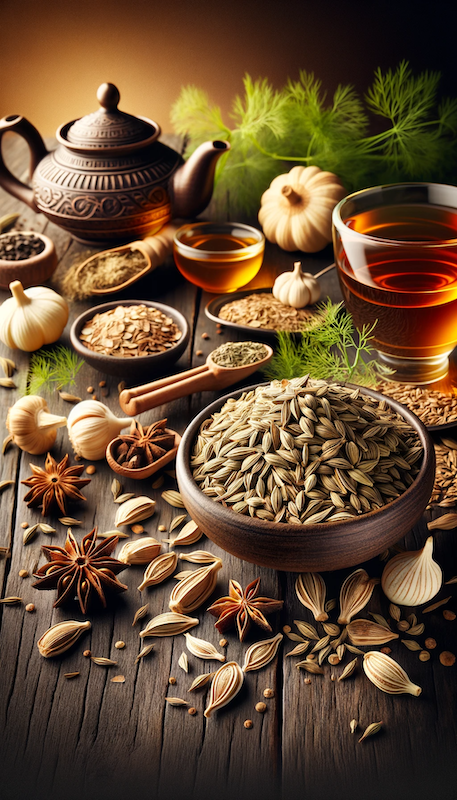Principal Use and Effect
Triphala, a staple in Ayurvedic medicine, is a herbal blend composed of three fruits: Amalaki, Bibhitaki, and Haritaki. Revered for its rejuvenating properties, Triphala is known to support digestive health, acting as a gentle laxative while also strengthening and nourishing the digestive tract. It's also noted for its potent antioxidant properties, which contribute to cellular health and protection. Triphala is believed to detoxify the body and support the immune system.
Effect on the Doshas
Triphala has a balancing effect on the three doshas (Vata, Pitta, Kapha) makes it a versatile remedy suitable for many.
Taste (Rasa)
Triphala encompasses five of the six Ayurvedic tastes – astringent (Bibhitaki), sour (Amalaki), sweet (Amalaki), bitter (Haritaki), and pungent (Haritaki).
Potency or Energy (Virya)
Triphala is considered to have a cooling virya. This makes it suitable for balancing Pitta and, to some extent, Kapha doshas.
Main Action (Karma)
The primary actions of Triphala include being a rejuvenative (Rasayana), a mild laxative, a digestive aid, and a detoxifier. It helps in balancing all three doshas – Vata, Pitta, and Kapha – and supports overall health and well-being.
Modern Research
- Triphala has shown potential in improving symptoms related to the lower gastrointestinal tract, making it a valuable addition to standard IBS treatments. It is recommended for use alone or alongside other probiotics in clinical studies. [Source]
- Beyond its well-known laxative effects, studies have found Triphala to be potentially effective in various clinical applications including as an antioxidant, anti-inflammatory, immunomodulator, and more. [Source]
- Recent advances suggest that polyphenols in Triphala are beneficial for cognitive and psychological resilience, affecting various receptors and pathways. [Source]
Remember, it's important to consult with a healthcare professional or an Ayurvedic practitioner before starting any new treatment to ensure its safety and suitability for your specific needs.






